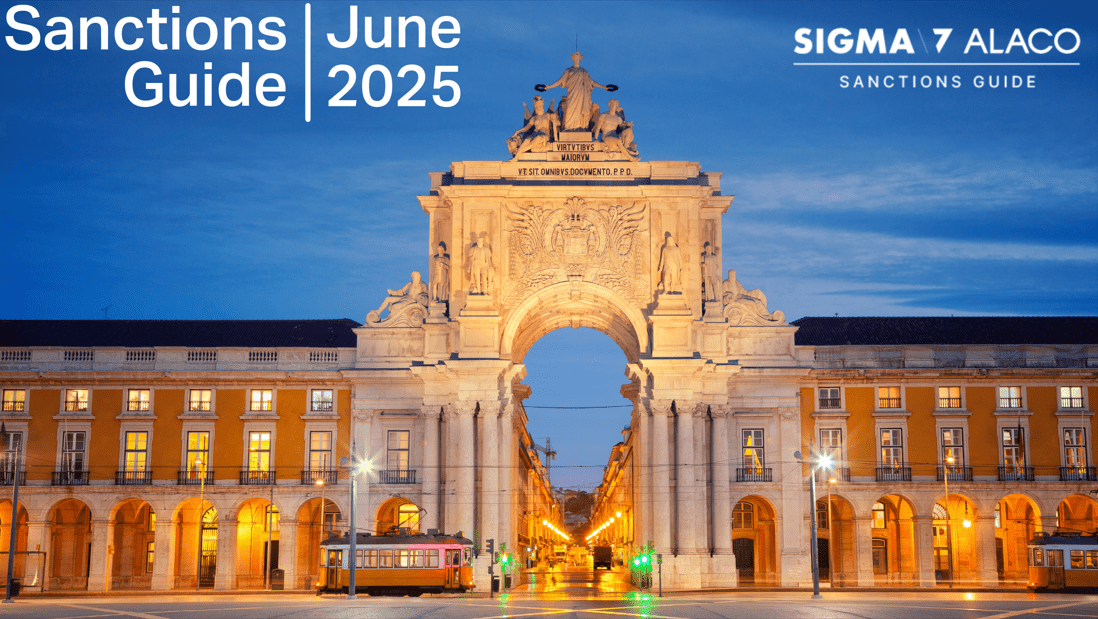Sanctions activity in June 2025 was marked by the continuation of US designations against transnational criminal networks and narcotics traffickers, as well as the revocation of sanctions against Syria, with the exception of key members of the Assad regime.
In a rare move the US condemned the UK, along with four other countries, for the designations of the Israeli Finance Minister and National Security Minister for the abuse of Palestinian human rights. The US Government asked the UK to reverse the sanctions, whilst Israel has said it will take steps against the UK and the other countries involved.
Regarding Russia, the EU has extended its regime against Russia and further updates are expected this week on the EU’s 18th Russia sanctions package after Hungary and Slovakia voted against the proposal in late June. The UK has continued designations, whilst there was a lack of US activity against Russia this month.
Enforcement actions continued at pace in the US, with notable cases involving sanctions evasion through cryptocurrency, arms exports, and illicit trade with China, DPRK, Iran, Venezuela and Russia. In the UK an art dealer was sent to prison for a series of sales to a sanctioned Hizballah financier.
Middle East
- The US has revoked six Executive Orders enforcing sanctions on Syria, whilst ensuring the continuation of sanctions against Bashar Al Assad, his associates, and other destabilising regional actors. Six members of the US House of Representatives also introduced a bill to repeal permanently The Ceasar Syria Civilian Protection Act which imposed US sanctions on Syria, rather than relying on rolling waivers. The EU also designated five Syrian nationals for their alleged involvement in the Assad regime and human rights abuses.
- US President Donald Trump has said he would consider lifting sanctions on Iran “if they can be peaceful,” despite having previously said he would not lift sanctions following a ceasefire between Israel and Iran.
- In a joint action with Australia, Canada, New Zealand, and Norway, the UK has sanctioned Israeli Finance Minister Bezalel Smotrich and National Security Minister Itamar Ben-Gvir for inciting “extremist violence and serious abuses of Palestinian human rights.” The US Department of State condemned the sanctions and has asked for them to be reversed. In response, Smotrich cancelled a waiver allowing Israeli banks to provide services to Palestinian financial institutions, and has stated that the Israeli Parliament is working towards “a package of steps” against the countries that have imposed sanctions.
- The US Department of State sanctioned four ICC judges for authorising investigations against US personnel in Afghanistan and for authorising arrest warrants against Israeli politicians Benjamin Netanyahu and Yoav Gallant. The ICC issued a statement criticising the designations for undermining the independence of the judicial body. The European Commission is reportedly discussing further sanctions on West Bank settlers and Hamas supporters.
- OFAC also designated 10 people and 27 entities on its Iran list, all of which comprise a network tied to the Zarringhalam brothers, three Iranians who have laundered billions of dollars via Iranian exchange houses and foreign front companies as part of Iran’s shadow banking network. OFAC also sanctioned one person and eight entities and identified one vessel as blocked property for involvement in the procurement and transshipment of sensitive machinery for Iran’s defence industry. Elsewhere, OFAC sanctioned four people and 12 entities, and identified two vessels as blocked property, for their alleged involvement in importing oil and “other illicit goods” in support of the Houthis, as well as a Ugandan national due to his alleged funding and recruiting for ISIL. OFAC also designated five people and six charities who are alleged to have financially supported Hamas and the Popular Front for the Liberation of Palestine.
Other Designations
- Donald Trump signed a proclamation, in which the US Government has fully restricted entry for nationals from 12 countries, including Afghanistan, Myanmar, and Iran, and partially restricted entry from nationals from seven countries, including Cuba, Turkmenistan, and Venezuela. The US Department of State also imposed visa restrictions on several Central American government officials and their family members for their nexus to the Cuban regime’s forced labour scheme, whilst three US senators have also introduced a bill to apply US sanctions on government officials in El Salvador who engage in human rights violations and to hold El Salvador accountable for “its collusion with the Trump Administration to imprison people without due process.”
- Throughout the month OFAC continued its designations of South American cartels under its counter narcotics and counter terrorism regimes. Designations included six individuals for trafficking cocaine from South America to the US, Europe and Caribbean; three people and ten entities associated with Los Chapitos, a faction of the sanctioned Sinaloa Cartel, for controlling laboratories linked to counterfeit pills containing fentanyl; five leaders of the Jalisco Nueva Generacion Cartel for allegedly participating in gang-related financial crime, violence, and narcotics production and trafficking; and the leader of Tren de Aragua, a US-designated foreign terrorist organisation and transnational criminal organisation alleged to be involved in the narcotics trade and human trafficking, among other things. The US has also imposed visa restrictions on family members and associates of individuals sanctioned for narcotics trafficking.
- Throughout the month, the EU designated three people and one entity on its Guatemala sanctions programme. Under the EU’s Russia hybrid threats sanctions regime, the European Council also sanctioned Nathalie Yamb, a Swiss-Cameroonian dual national and social media influencer, for her outspoken support for Russia and ties with an organisation linked to Russian private military activity in Africa.
- The UK designated four individuals and six entities on its Russia sanctions list, also specifying 20 vessels under its Russia Regulations which are prohibited from accessing UK ports.
Regulation Amendments
- The EU extended its sanctions regimes against Crimea and Sevastopol, and Russia, and amended its Common Customs Tariff so Belarussian and Russian agricultural imports to the EU no longer benefit from import duty exemptions. The EU also announced the details of its 18th Russian sanctions package to further target Russia’s energy reserves and infrastructure, its banking sector, its shadow fleet, and to lower the crude oil price cap from $60 to $45. The package includes a prohibition on EU operators from transactions concerning the Nord Stream pipelines, as well as the designations of several Russian and foreign companies said to support Russia’s military and industrial complex. The package requires unanimous support by EU Member States before it can be adopted and has met opposition from Hungary and Slovakia who reportedly voted to block it. The next vote is scheduled in early June.
- UK press reported that the UK National Crime Agency has identified individuals to be sanctioned under a new “illegal migration” sanctions regime. Legislation for the regime is due to be passed by parliament later in the year. The UK also introduced legislation to protect employees who disclose potential violations to the Government. OFSI has extended two General Licences permitting certain activities, including the maritime transfer of Russian oil, related to the Sakhalin-2 Project, an oil and gas development in Russia which supplies roughly 9% of Japan’s LNG imports.
- The UN Security Council voted to extend its South Sudan and Democratic Republic of Congo regime for a year, as well as its arms embargo on Libya for six months.
Enforcement
- Chinese national Cui Guanghai, UK national John Miller and an unnamed US resident were charged with violations of the US Arms Export Control Act. The defendants, who are currently in Serbia, are alleged to have, among other things, procured US defence items for export to China and attempted to prevent an individual from criticising the Chinese government. Another Chinese national, Shenghua Wen, pleaded guilty to criminal charges of exporting firearms, ammunition, and other military items to DPRK by concealing them inside shipping containers departing from California, in return for approximately $2 million sent by DPRK government officials. The US Department of Justice (“DoJ”) separately announced enforcement action against DPRK illicit revenue generation schemes designed to evade sanctions in 16 US states, targeting North Korean individuals who obtained US employment using stolen or fake IDs to steal export-controlled US military technology and virtual currency.
- The DoJ is reportedly investigating Indian publicly-listed trading house Adani Enterprises Limited for alleged sanctions breaches related to the import of petrochemicals to India from Iran. Adani Enterprises has denied knowledge of the investigation and any engagement in sanctions evasion. Also in relation to Iranian sanctions, the US Court of Appeals upheld the conviction of an individual for sending construction equipment to Iran without a licence, and OFAC imposed a $3.9 million fine on petroleum catalyst product supplier Unicat Catalyst Technologies LLC as part of a settlement agreement over the company’s violations of US sanctions on Iran and Venezuela.
- A criminal complaint has been lodged in the US against two individuals who allegedly conspired to sell chemical catalysts and industrial equipment to Venezuelan state-owned steel and petrochemical companies. They face 20 years’ imprisonment if found guilty.
- Regarding Russia, the assets of sanctioned Russian oligarch Suleiman Kerimov were a focus in June. OFAC issued a penalty notice for almost $216 million against venture capital firm GVA Capital Ltd for managing Kerimov’s investments after his designation and failing to comply with an OFAC subpoena. A New York court also refused to stay the forfeiture of Kerimov’s seized Amadea yacht; Eduard Khudaintatov argued that he was the true owner of the yacht, although the court found that he had not provided sufficient evidence that he was not a proxy owner. Separately, the DoJ unsealed a 22-count indictment of Iurii Gugnin, a New York resident and Russian citizen, with various offenses related to using his cryptocurrency company Evita to funnel over $500 million of overseas payments to aid Russian banks and help Russian end-users to acquire sensitive US technology while hiding the source and purpose of the transactions.
- In the UK, the UK Crown Prosecution Service sentenced art dealer Oghenochuko Ojiri to two years and six months in prison for failing to report sales to Nazem Ahmad, an alleged financier of Hizballah, who has been sanctioned by the US since 2019 and the UK since 2023. Separately, British aviation expert David Greenhalgh and Greek financier Christos Farmakis have pleaded not guilty to 17 charges under the UK Export Control Act, which included involvement in the supply and delivery of weapons and defence equipment to several countries, including Sudan, South Sudan, Iran, Libya and Syria. The Court of Arbitration for Sport has held that UK sanctions make it temporarily unlawful for West Ham United Football Club to pay a transfer fee owed to Russian football club CSKA under a transfer agreement.
- In the EU, the EU General Court rejected the delisting applications of Alfa Bank JSC and its major shareholder German Khan, but annulled the March 2024 listing of Vyacheslav Aleksandrovich Boguslayev. An Estonian journalist, Svetlana Burceva, was convicted of sanctions violations and treason, having allegedly worked for the Russian media conglomerate Russia Today. She was sentenced to six years’ imprisonment in total, two of which were attributed to sanctions violations.


